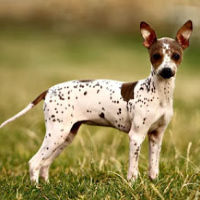FYI: If you buy something through a link on this site I may earn a commission - at NO extra cost to you.
Hypoallergenic Dogs
First of all....entirely hypoallergenic dogs do not exist and neither do totally allergy-free dog breeds.
There is no dog breed which is guaranteed not to trigger allergy symptoms in someone who is sensitive to dog hair and/or dander.
So, if you have allergies there's no single magically appropriate dog for you. But luckily, there is also some good news!
There ARE dogs who are less likely to produce an allergic reaction in people who have sensitivities or allergies to dog hair/dander, and for the approximately 10% of Americans who are allergic, this is good news.
If you're one of them, this page will help you find the breeds that are least likely to cause you problems, so that you can (hopefully) enjoy all the benefits of dog ownership without the sneezing, watery eyes, wheezing and so on.
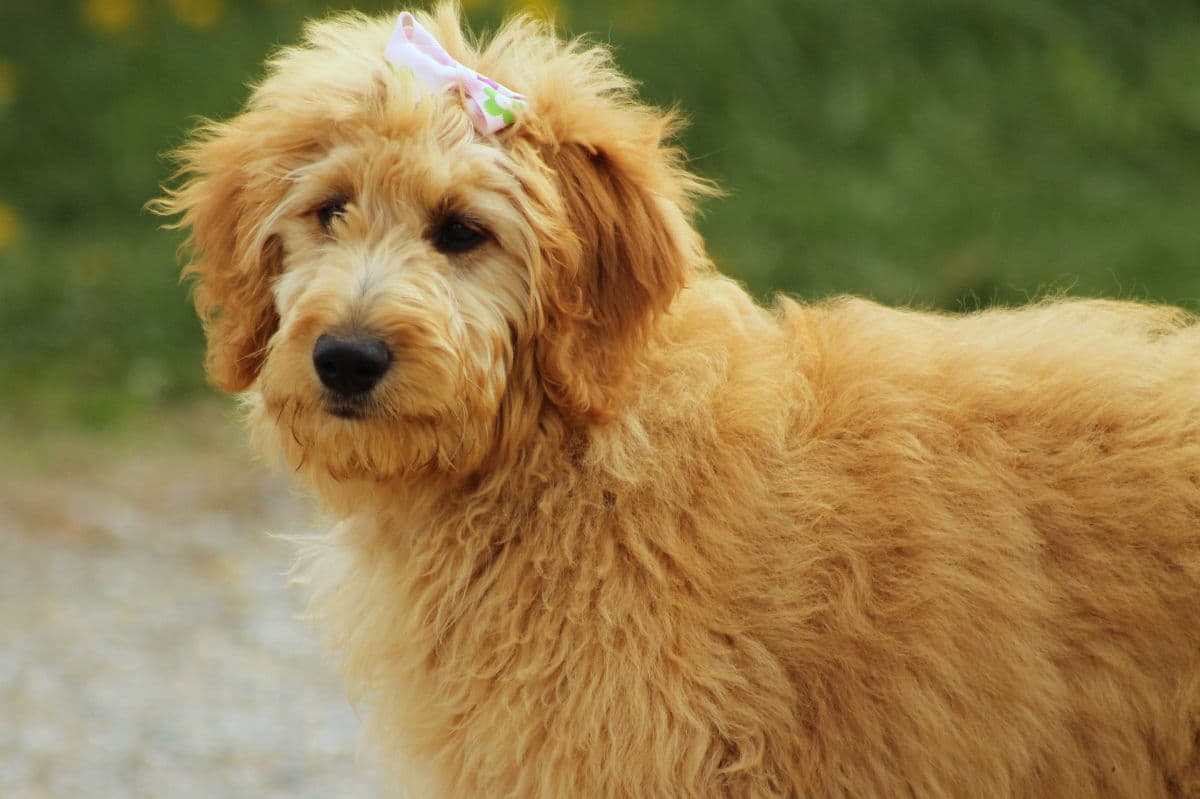
What Exactly are Hypoallergenic Dogs?
Hypoallergenic dogs are specific breeds that tend to produce a lower level of allergic response in people who are sensitive to pet hair and dander. For some people, they may not produce any reaction at all.
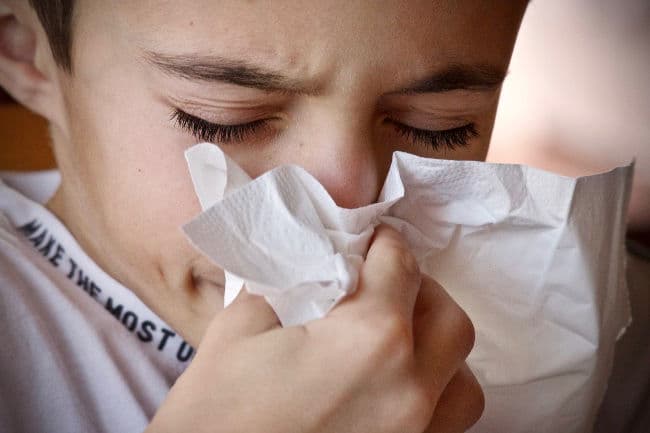
But even within this group, each person can have a different reaction to a certain breed, or even to an individual dog
within the breed.
So, just because your allergy-prone best friend doesn't suffer around her Poodle, it doesn't mean you will react the same way.
It's important to realize that it's not just the hair and dander that can cause an allergic response, the proteins in dog saliva can have a similar effect - and regardless of how much hair a certain breed has, all dogs have saliva.
About Dog Hair Allergies
These allergens themselves are very tiny, and not normally visible to the human eye. They float through the air and they're 'sticky', which is why dog allergy sufferers often experience itchy eyes and noses.
The amount of dog dander a particular dog breed produces is often linked to the type of coat it has. The more a dog sheds his hair, the higher the likelihood is that he'll also shed his dander.
So if you, or someone else in your home, has pet allergies your best bet is to stay away from the heavy shedders (that includes popular breeds such as Labrador Retrievers, Golden Retrievers and German Shepherds).
The type of hair your dog has is linked to allergies in too, and it's not the length of the hair that's the biggest problem but the thickness.
Particularly heavy, dense, thick or 'double' coated breeds (even if they're not necessarily heavy shedders) can cause problems for allergy sufferers.
This is because their coats collect lots of dust, pollen, grass etc. and then redistribute it every time they shake, scratch or groom themselves. Not what you're looking for!
Also bear in mind that if you're looking for hypoallergenic dogs, you should steer clear of Mastiffs and other slobber-prone dogs due to the allergens in dog saliva.
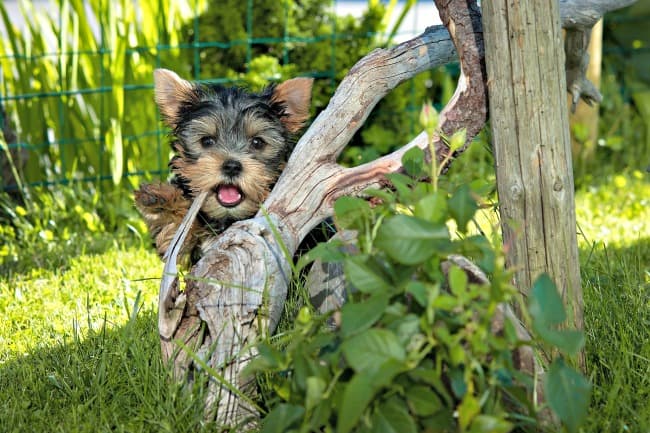
It may seem obvious, but not everyone thinks about this..... smaller dog
breeds produce less dander, shed less hair and salivate less than larger breeds, simply because there is less skin, hair and saliva on/in their little bodies!
So maybe bigger isn't necessarily
better when it comes to looking for a breed that could be considered hypoallergenic.
Here's a book that might help you when choosing a dog breed for a family with allergies... it's called Sneeze-Free Dog Breeds
Best Dogs For Allergy Sufferers
When you're choosing a dog for people with allergies, it's a really good idea to see if you can arrange a 'trial run' before committing yourself.
Remember hypoallergenic dogs are not allergy free dog breeds and you won't know how you react to a particular breed until you've been exposed to it.
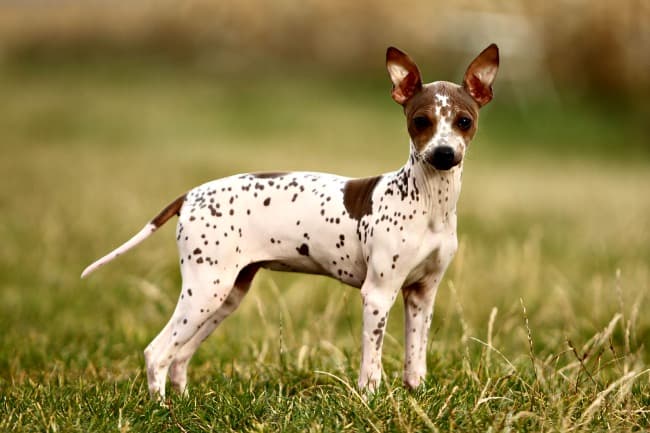
If possible, visit the breeders home (on a trip that doesn't involve any prior, or subsequent, exposure to dogs), and plan to spend at least an hour there, interacting with the dogs in their own environment.
You may not notice any immediate reaction, but be aware that it could be delayed, so pay attention to how you feel for the rest of the day too.
Ask about a return policy for the puppy. Often good, conscientious breeders will take back a puppy for any reason, rather than have that pup end up in an animal shelter, or worse. But do be prepared to lose the money you spent on the puppy in that case.
Taking your time to find the very best match for you and your family, greatly increases the chances that you and your new pet will have a long, happy relationship..........and that's something worth waiting for!
Of course, the ultimate in allergy-friendly dog breeds would have to be the hairless dogs, such as the Chinese Crested or Xoloicuintli, but they're not the only choices available.
Here are some breeds that are much more 'hypoallergenic' than your average dog......
- American Hairless Terrier
- Airedale Terrier
- Basenji
- Bedlington Terrier
- Bergamasco
- Bichon Frise
- Bichon/Yorkie
- Bolognese
- Border Terrier
- Bouvier des Flandres
- Cairn Terrier
- Cavachon
- Chacy Ranior
- Chihuahua
- Chinese Crested (hairless)
- Chinese Crested (powder puff)
- Cockapoo
- Coton De Tulear
- Giant Schnauzer
- Greyhound
- Havanese
- Irish Water Spaniel
- Italian Greyhound
- Kerry Blue Terrier
- Komondor
- Labradoodle
- Lagotto Romagnolo
- Lowchen
- Maltese
- Malti-Poo
- Miniature Schnauzer
- Native American Indian Dog
- Norfolk Terrier
- Old English Sheepdog
- Peruvian Inca Orchid
- Poodle (and most Poodle mixes such as Labradoodle, Malti-Poo etc.)
- Portuguese Water Dog
- Puli
- Samoyed
- Shih Tzu
- Soft Coated Wheaten Terrier
- Spanish Water Dog
- Standard Poodle
- Standard Schnauzer
- Tibetan Terrier
- Toy Poodle
- West Highland White Terrier
- Wirehaired Fox Terrier
- Xoloitzcuintli (very old and rare breed)
- Yorkshire Terrier
Just as there are a lot of dogs that can make good pets in this type of situation, there are others that are NOT a good choice for a home with allergy sufferers.
When you're looking for your new pet, it's useful to know which breeds are best to avoid. They include.....
- Afghan Hound
- Basset Hound
- Bloodhound
- Chinese Shar Pei
- Cocker Spaniel
- Dachshund
- Doberman Pinscher
- Dogue de Bordeaux
- German Shepherd
- Golden Retriever
- Great Pyrenees
- Irish Setter
- Labrador Retriever
- Mastiffs (of all kinds)
- Newfoundland
- Springer Spaniel
- Saint Bernard
One last point that I'd like to mention is that although your primary goal is to find a hypoallergenic dog so that your allergy issues are less (or even non-existent) - also remember that each and every dog breed has it's own unique blend of characteristics and traits.
It's important to get all the other variables right as well if you want your new family member to 'fit in'. So do look at size, temperament, drive and all the other things that make a dog who he (or she) is, and don't choose based on coat type or drool-level alone!
For more information on the adorable Bichon Frise, check out this website...
Bichon Frise - A site dedicated to the Bichon Frise. Learn all about this hypoallergenic and non shedding dog breed that is becoming very popular with people who suffer from allergies and asthma. Information on puppies, health, diet and much more.
you might also like...
- Home
- Dog Breed Information
- Hypoallergenic Dogs
FTC Disclosure: Some pages on this site contain affiliate links. I may earn on qualified purchases.

